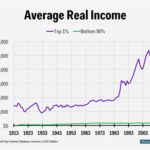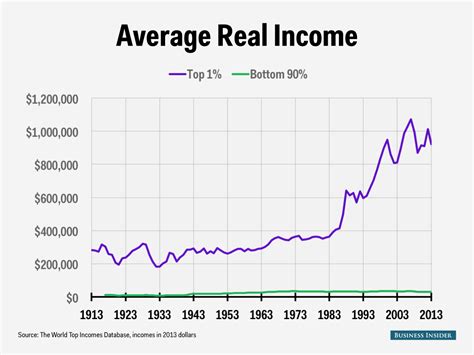
Condo values in some markets are plummeting, leaving homeowners reeling from significant financial losses, as illustrated by one homeowner who reports feeling “sick” after losing $100,000 on their property’s value.
The dream of homeownership is turning into a nightmare for some condo owners as property values experience a sharp decline in certain markets. A recent Yahoo Finance article highlighted the plight of one homeowner, identified only as Cheryl, who expressed profound disappointment and anxiety after witnessing a $100,000 drop in the value of her condo. This situation underscores a worrying trend for condo owners in specific regions, sparking concerns about the stability of the housing market and the financial well-being of homeowners.
Cheryl, who purchased her condo with the aspiration of building long-term financial security, is now grappling with the harsh reality of a depreciating asset. “It makes me feel sick,” she confessed, encapsulating the emotional distress and financial strain many condo owners are currently facing. This downturn is not merely a statistical anomaly; it represents a tangible loss of equity and a significant blow to personal financial planning for those affected.
The factors contributing to this decline in condo values are multifaceted and interconnected. Overbuilding in certain urban areas has led to an oversupply of condos, diluting demand and driving down prices. Economic uncertainties, including rising interest rates and inflationary pressures, have further dampened buyer enthusiasm, exacerbating the downward pressure on property values. Moreover, shifts in lifestyle preferences, with some buyers favoring single-family homes or suburban living, have also played a role in the declining appeal of condos in certain markets.
The implications of this trend extend beyond individual homeowners. Declining condo values can have a ripple effect on the broader housing market, potentially triggering a slowdown in construction activity and impacting related industries such as real estate services and mortgage lending. For municipalities, lower property values can translate into reduced tax revenues, affecting their ability to fund essential public services.
Experts advise homeowners facing similar situations to remain informed, explore options for refinancing or mortgage modification, and seek professional financial advice. Diversifying investments and developing a long-term financial strategy are also crucial steps to mitigate the impact of market fluctuations. The current situation serves as a stark reminder of the inherent risks associated with real estate investments and the importance of prudent financial planning.
Analyzing the Condo Value Plunge
The recent decline in condo values is not an isolated event, but rather a symptom of broader economic and market forces at play. Understanding the underlying causes and potential consequences is crucial for homeowners, investors, and policymakers alike.
Oversupply and Market Saturation
One of the primary drivers of the condo value plunge is oversupply in certain markets. During the past decade, many urban centers experienced a construction boom, with developers rushing to build new condo projects to meet the perceived demand for urban living. However, in some areas, the supply of condos has outstripped demand, leading to a glut of unsold units and downward pressure on prices.
Cities that have experienced rapid population growth and urbanization are particularly vulnerable to oversupply. In these markets, developers often overestimate the long-term demand for condos, leading to an excessive number of units hitting the market simultaneously. As a result, prospective buyers have more options to choose from, and sellers are forced to lower their prices to attract buyers.
Economic Uncertainties and Interest Rate Hikes
Economic uncertainties and rising interest rates have also contributed to the decline in condo values. The global economy has been facing a number of challenges in recent years, including trade tensions, geopolitical instability, and inflationary pressures. These factors have created uncertainty in the financial markets, leading to a decrease in investor confidence.
Rising interest rates, in particular, have had a significant impact on the housing market. As interest rates increase, the cost of borrowing money to purchase a home also increases. This makes it more difficult for prospective buyers to afford a home, leading to a decrease in demand and downward pressure on prices. The Federal Reserve’s recent decisions to raise interest rates to combat inflation have further exacerbated this trend.
Shifting Lifestyle Preferences
Shifting lifestyle preferences are also playing a role in the declining appeal of condos in certain markets. The COVID-19 pandemic has prompted many people to re-evaluate their living situations and prioritize space, privacy, and access to outdoor amenities. As a result, some buyers are now favoring single-family homes or suburban living over condos in urban areas.
The rise of remote work has also contributed to this trend. With more people working from home, the need to live close to the office has diminished, allowing buyers to consider options in more affordable suburban or rural areas. This shift in preferences has further reduced demand for condos in urban centers, leading to lower prices.
Regional Variations
It’s important to note that the decline in condo values is not uniform across all markets. Some regions are experiencing a more pronounced downturn than others, depending on local economic conditions, supply and demand dynamics, and demographic trends.
For example, cities with a high concentration of tech workers and a strong economy may be more resilient to the downturn than cities with a struggling economy and a declining population. Similarly, markets with limited condo supply may experience less price depreciation than markets with an oversupply of units.
Impact on Homeowners
The decline in condo values has significant implications for homeowners, particularly those who purchased their properties in recent years. Homeowners who bought at the peak of the market may now find themselves underwater on their mortgages, meaning that they owe more on their loans than their properties are worth.
This situation can create a financial hardship for homeowners, making it difficult to sell their properties or refinance their mortgages. In some cases, homeowners may be forced to foreclose on their homes, leading to a loss of equity and damage to their credit scores.
Potential Ripple Effects
The decline in condo values can also have ripple effects on the broader economy. Lower property values can lead to reduced consumer spending, as homeowners feel less wealthy and are more cautious about making discretionary purchases.
The housing market is a significant driver of economic activity, and a slowdown in the housing market can have a negative impact on related industries such as construction, real estate services, and mortgage lending.
Furthermore, declining property values can lead to reduced tax revenues for municipalities, affecting their ability to fund essential public services such as schools, roads, and public safety.
Expert Advice for Homeowners
Given the current market conditions, it’s essential for homeowners to take proactive steps to protect their financial well-being. Experts advise homeowners facing similar situations to:
- Stay Informed: Keep abreast of market trends and local economic conditions to understand the factors affecting property values in their area.
- Explore Refinancing Options: Consider refinancing their mortgages to take advantage of lower interest rates, if available.
- Seek Mortgage Modification: If facing financial hardship, explore options for mortgage modification or forbearance with their lenders.
- Obtain Professional Financial Advice: Consult with a qualified financial advisor to develop a long-term financial strategy that takes into account market fluctuations and personal circumstances.
- Diversify Investments: Diversify their investment portfolios to reduce their exposure to the real estate market.
Long-Term Perspective
While the current decline in condo values is concerning, it’s important to maintain a long-term perspective. Real estate markets are cyclical, and prices can fluctuate over time. While there is no guarantee that condo values will rebound in the near future, history suggests that they will eventually recover.
In the meantime, homeowners should focus on managing their finances prudently and making informed decisions based on their individual circumstances.
Case Studies and Examples
To further illustrate the impact of the condo value plunge, let’s examine a few hypothetical case studies:
-
Case Study 1: The Young Professional
- Name: Alex
- Occupation: Software Engineer
- Bought a condo in a downtown urban area for $600,000 in 2021.
- Now the condo is valued at $500,000.
- Alex is concerned about the loss of equity and the potential impact on future financial goals.
- Alex’s Concerns: Difficulty selling the condo if needed, potential impact on credit score if forced to foreclose.
- Alex’s Actions: Seeks financial advice, explores refinancing options, diversifies investments.
-
Case Study 2: The Retiree
- Name: Maria
- Occupation: Retired Teacher
- Bought a condo as a retirement home for $400,000 in 2019.
- Now the condo is valued at $320,000.
- Maria is worried about the impact on her retirement savings.
- Maria’s Concerns: Reduced retirement income, difficulty downsizing if needed, potential strain on family finances.
- Maria’s Actions: Considers downsizing to a smaller property, explores options for renting out the condo, seeks government assistance programs.
-
Case Study 3: The Investor
- Name: David
- Occupation: Real Estate Investor
- Bought several condos as investment properties for $800,000 each in 2020.
- Now the condos are valued at $650,000 each.
- David is concerned about the impact on his investment portfolio.
- David’s Concerns: Reduced rental income, difficulty selling the properties, potential losses on investment.
- David’s Actions: Adjusts rental rates, explores options for renovating the properties, seeks expert advice on managing investment portfolio.
The Role of Government and Policy Makers
Government and policymakers can play a role in mitigating the impact of the condo value plunge and supporting homeowners. Potential policy measures include:
- Interest Rate Policies: Implementing accommodative monetary policies to keep interest rates low and support borrowing.
- Housing Assistance Programs: Expanding access to housing assistance programs for low- and moderate-income homeowners.
- Tax Incentives: Providing tax incentives for first-time homebuyers and homeowners who are struggling to make mortgage payments.
- Infrastructure Investments: Investing in infrastructure projects to stimulate economic growth and create jobs.
- Zoning Regulations: Reviewing zoning regulations to ensure a balanced supply of housing options and prevent overbuilding in certain areas.
Conclusion
The decline in condo values is a complex issue with far-reaching implications. While the situation is concerning for homeowners, it’s important to understand the underlying causes and take proactive steps to protect their financial well-being. By staying informed, seeking expert advice, and maintaining a long-term perspective, homeowners can navigate the challenges and mitigate the impact of market fluctuations. Government and policymakers also have a role to play in supporting homeowners and promoting a stable and sustainable housing market. The situation demands a comprehensive approach involving individual responsibility, expert guidance, and supportive public policies. Only through such concerted effort can the negative consequences be minimized and a path to recovery be paved.
Frequently Asked Questions (FAQ)
-
Why are condo values dropping in some areas? Condo values are dropping due to a combination of factors, including oversupply in certain markets, rising interest rates, economic uncertainties, and shifting lifestyle preferences favoring single-family homes.
-
How much have condo values dropped? The amount varies by location, but in some instances, condo values have dropped significantly. The article cites one homeowner who experienced a $100,000 loss in value. The actual percentage decrease depends on the specific market and the initial purchase price of the condo.
-
What should I do if my condo value has decreased? Experts recommend staying informed about market trends, exploring refinancing options, seeking mortgage modification if needed, obtaining professional financial advice, and diversifying investments.
-
Are all condo markets experiencing a decline? No, the decline in condo values is not uniform across all markets. Some regions are experiencing a more pronounced downturn than others, depending on local economic conditions and supply and demand dynamics. Areas with strong economies and limited supply may be more resilient.
-
What is the long-term outlook for condo values? Real estate markets are cyclical, and while there is no guarantee, history suggests that condo values will eventually recover. The timing and extent of the recovery will depend on various economic and market factors. Homeowners should focus on managing their finances prudently and making informed decisions.
-
What are the signs of a condo market experiencing an oversupply? Key indicators include a high number of unsold units, extended time on the market for listings, price reductions, and increased incentives offered by developers. Monitoring these metrics can provide insights into the balance between supply and demand.
-
How do rising interest rates specifically affect condo values? Higher interest rates increase the cost of borrowing, making mortgages more expensive. This reduces the affordability of condos for potential buyers, leading to decreased demand and downward pressure on prices.
-
What alternative living arrangements are contributing to the shift away from condos? The trend towards remote work has made suburban and rural living more attractive, with buyers seeking larger homes, yards, and more privacy compared to the often smaller, more densely populated condo environments.
-
What government policies could help stabilize condo values? Policymakers could implement measures such as lowering interest rates, providing housing assistance programs, offering tax incentives for homebuyers, investing in infrastructure to stimulate economic growth, and reviewing zoning regulations to prevent overbuilding.
-
Is it a good time to buy or sell a condo in a declining market? Whether it’s a good time to buy or sell depends on individual circumstances. Buyers may find opportunities for better deals, but they should carefully consider the potential for further price declines. Sellers may need to adjust their expectations and pricing strategies to attract buyers. Consulting with a real estate professional is advisable.
-
How does the condition of a condo affect its value in a declining market? In a declining market, the condition of a condo becomes even more critical. Well-maintained and updated units tend to hold their value better and attract more buyers. Investing in necessary repairs and upgrades can help a condo stand out from the competition.
-
What role do homeowners’ associations (HOAs) play in condo values? HOAs can significantly impact condo values. A well-managed HOA that maintains the property, provides desirable amenities, and has a healthy financial reserve can positively influence values. Conversely, an HOA with poor management, deferred maintenance, or high fees can negatively affect values.
-
How can homeowners increase the appeal of their condo to potential buyers? Homeowners can enhance their condo’s appeal by making cosmetic improvements, decluttering and staging the unit, highlighting its unique features, and offering incentives such as paying for closing costs or including furniture.
-
What is the difference between a short sale and a foreclosure, and how do they impact condo values? A short sale occurs when a homeowner sells their property for less than what they owe on their mortgage, with the lender’s approval. A foreclosure happens when the lender takes possession of the property due to the homeowner’s failure to make mortgage payments. Both can negatively impact condo values by increasing the supply of distressed properties on the market.
-
What are some strategies for managing the emotional stress of a declining condo value? It is important to acknowledge and validate your feelings. Seek support from friends, family, or a therapist. Focus on what you can control, such as managing your finances and exploring options for improving your situation. Remember that real estate markets are cyclical, and this downturn is likely temporary.
-
How do local job market conditions affect condo values? A strong local job market typically leads to increased demand for housing, including condos, which can help stabilize or increase property values. Conversely, a weak job market can reduce demand and contribute to declining values.
-
What are the risks of renting out a condo in a declining market? While renting out a condo can generate income, there are risks in a declining market. Rental income may not cover mortgage payments, and finding reliable tenants can be challenging. Property management costs and potential vacancies can also reduce profitability.
-
How do demographic trends influence condo values? Demographic trends, such as population growth, aging populations, and changes in household sizes, can impact condo values. For example, an influx of young professionals seeking urban living can increase demand for condos, while an aging population may prefer single-family homes in suburban areas.
-
What is the impact of new construction on existing condo values? New condo construction can increase competition and put downward pressure on existing condo values, especially if the new units offer updated amenities or more attractive features.
-
What are some alternative investment options for homeowners concerned about declining condo values? Homeowners can consider diversifying their investments into stocks, bonds, mutual funds, or other asset classes. Consulting with a financial advisor can help them develop a diversified investment portfolio that aligns with their risk tolerance and financial goals.









